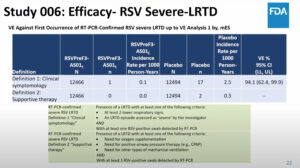NEW YORK (Reuters Health) – Long-term treatment with infliximab has a good safety profile and significantly reduces hospitalization and surgery rates in patients with Crohn’s disease, according to the results of two studies by a Belgian research group. Both studies are reported in the April issue of Gut.
To assess the long-term safety of infliximab, Dr. P. Rutgeerts, from University Hospital Gasthuisberg, Leuven, and colleagues reviewed the medical records of 734 patients with inflammatory bowel disease, primarily Crohn’s, who were treated with infliximab over a 14-year period and 666 control patients who did not receive the drug. The median follow-up periods for treated patients and controls were 58 and 144 months, respectively.
Thirteen percent of infliximab-treated patients and 19% of controls had severe adverse events (p = NS). Mortality, malignancy, and infection rates did not differ between the groups.
Two infliximab-treated patients with negative skin test results at baseline developed tuberculosis, the report indicates. No cases occurred in the 16 patients with positive tests at baseline who received prophylaxis.
In the infliximab group, co-treatment with steroids was the only risk factor independently linked to infections (OR = 2.69, p = 0.018). Skin eruptions were the most common side effects seen in the infliximab group, noted in 20% of patients.
The second study, which focused on drug efficacy, included 614 consecutive patients with Crohn’s disease who were treated with infliximab and followed for a median period of 55 months.
About 11% of patients did not respond to infliximab, Dr. Rutgeerts and colleagues note.
Among responders, 63.4% experienced sustained benefit with long-term therapy. Roughly 68% of these patients had ongoing treatment with the drug, while the remainder had treatment stopped after remission occurred.
Overall, 12.8% of patients stopped infliximab therapy due to side effects and 21.6% stopped because of a loss of response.
As noted, treatment with infliximab reduced hospitalizations and surgery for Crohn’s disease. This benefit was more pronounced in subjects who received the drug on a scheduled basis rather than as needed for symptom flare-ups.
In a related editorial, Dr. Jurgen Scholmerich, from University Regensburg, Germany, comments that “the two papers from Leuven published in this issue of Gut indicate that the use of infliximab in appropriately selected patients will help to improve long-term outcome. It obviously does not solve the problems in all patients forever, and it has some relevant side effects typical of strong immunosuppression, which can be limited by careful observation and follow-up in the hands of experienced clinicians.”
Reference:
Gut 2009;58:477-478,492-508.




